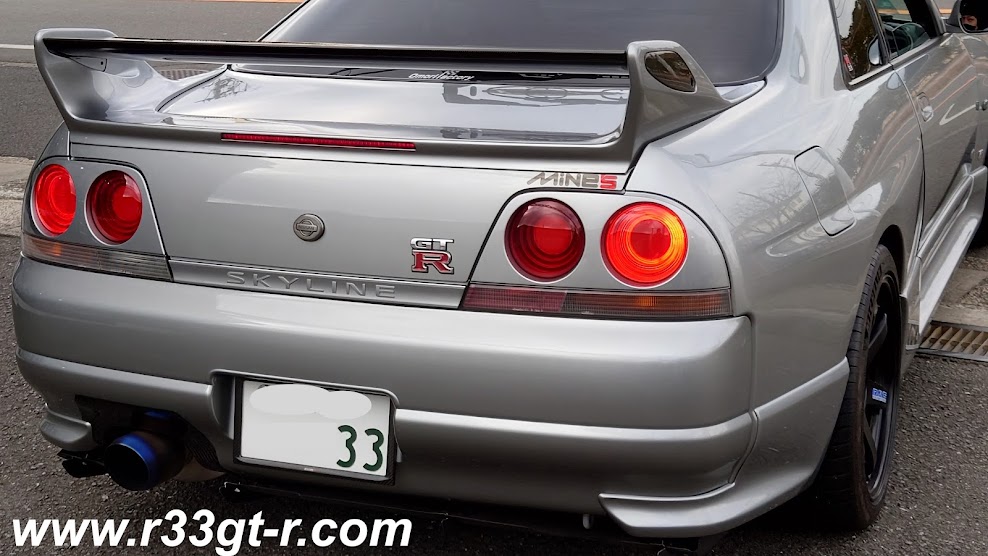Remember this install? The Nagisa auto brace:
While I was able to feel a difference immediately, I assumed
that this type of brace was used only on older cars that were probably designed
before automakers had access to supercomputers and hence could be improved upon
with a simple bolt on. But look at this,
which I recently found in a current model year catalog for the Lexus GS cars:
Yes that’s right – an almost identical brace, in the same
location! Presumably, supercomputers also agree that an efficient way to
improve body rigidity even in today’s cars is by way of this type of bolt on
brace. Amazing.
Going even further back – I had installed these underfloor aerodynamic devices
Daytona Ground Effectors. As I recall the car felt slightly
more planted with them installed. Unfortunately with the addition of some
underfloor Nismo bracing, these Effectors had to be removed as they used the
same mounting points, but I continued to wonder what could be done to help
airflow under the car.
Looking at this photo – taken from the same Lexus catalog as the photo above –
shows that modern cars also use under chassis aerodynamic tweaks in order to
improve airflow. Interesting. I’m sure that Toyota spent lots of money and lots
of wind tunnel time to perfect these under chassis bits, making them minimally
intrusive while maximally effective. As
I obviously I can’t replicate this on my car (unless someone wants to lend me a
wind tunnel and a computer or two), I think the Ground Effectors may be the
most cost effective way to go. So, I may have to rethink about their placement
under my car.
Finally, I’m happy to report that I was finally able to take
the car out for a full blast run, including a quick high speed run on the
expressway, to test out the full breadth of the Okada Plasma Directs.
In a word, awesome. There is definitely a difference in how the
car accelerates. Yes there is more power off the line, and also the engine revs
up more smoothly and there seems to be more torque throughout the entire RPM
range. Not only could I tell there was a
difference, it was enough of a difference that the new found acceleration was
addicting, I was lucky not to get a speeding ticket that night. Of course, part of the difference in engine
performance might have come from the Tomei exhaust (which I uncorked) as well
as the colder than usual air, but this would explain only part of the
difference in response I think. So as I said before, a worthwhile addition, however get all of the other engine mods done first!
So what's next? Stay tuned...






3 comments:
Hi Aki,
Good observation on the Lexus technologies! I'm glad to see some of the mods we do on our GT-Rs are actually proven technologies on modern cars.
I'm interested in learning more about the Daytona Ground Effector. Are those installed so the strips are perpendicular to the flow of air? It looks to me the Lexus fins are placed in line to the flow of air.
Is it similar to the concept of Juran Racing's Under Fairing? http://www.tanida-web.co.jp/Pages/exterior.html
I can find similar air guides to the Juran Racing Under Fairing on a BMW E92.
マット
so when you are going to start YOUR blog? Would be good to see what you're up to... but yes the Lexus has fins parallel to air flow, while the Ground Effector was almost perpendicular, but there was a slight angle back.
Good find on the Under Fairing - although it's the same dimensions (just shorter) as the Under Spats and thus a better deal. All you have to do is cut to fit. Yeah, I think even Honda Fits these days have them installed from the factory.
Check out this link for some really good info on the DIY process (so we don't do something that actually hurts):
http://autospeed.com/cms/title_Modifying-UnderCar-Airflow-Part-1/A_2455/article.html
Aki
Thanks for the link Aki. I ended up reading quite a few articles from the site. Very informative and interesting.
Unfortunately, I don't have a blog for my car. I do have a photo album on Facebook which pretty much documents my GT-R's life.
Post a Comment